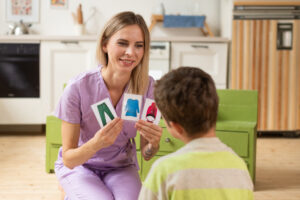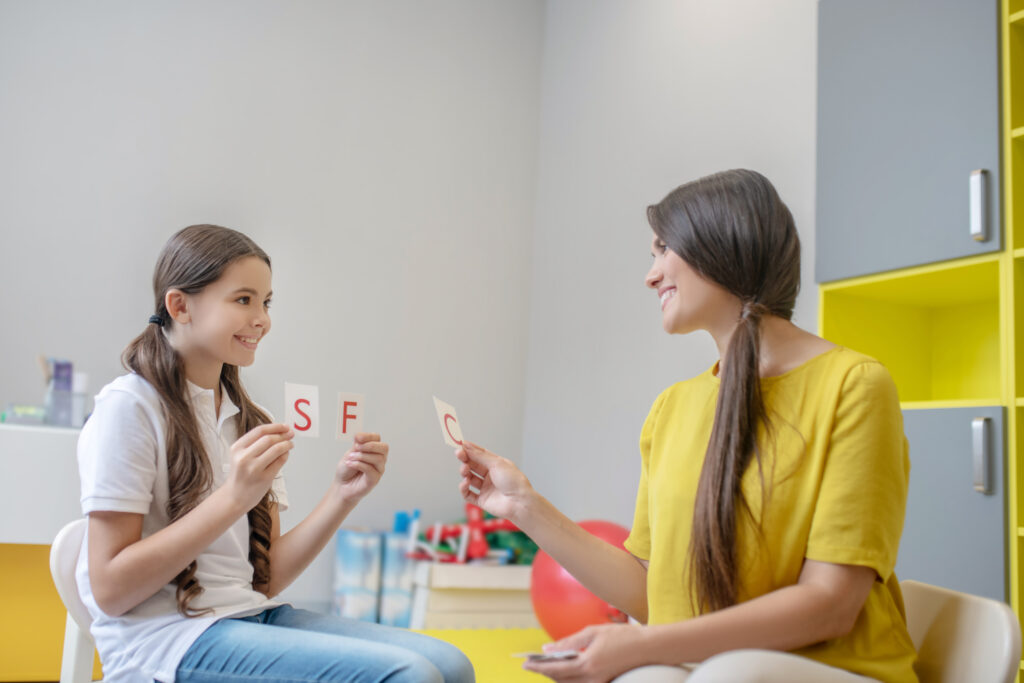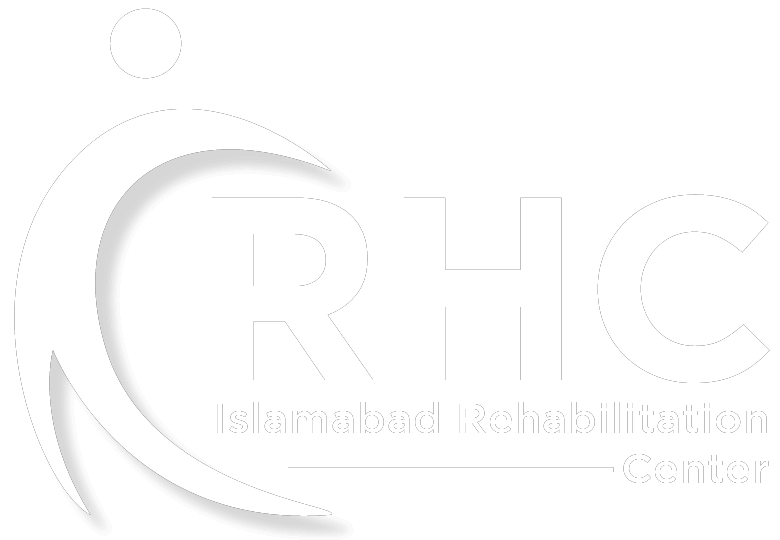Speech therapy is a specialized field that focuses on improving children’s communication skills. It encompasses a variety of techniques aimed at addressing speech, language, and communication challenges. These challenges can range from articulation issues to difficulties in language comprehension.
Islamabad speech therapy for kids is designed to be engaging and enjoyable, making learning seamless and effective. It’s a journey that not only helps in speech development but also builds confidence and social skills.
The Importance of Early Intervention
Early intervention in speech therapy is crucial. The sooner a child begins therapy, the better the outcomes tend to be. Early intervention can significantly improve a child’s ability to communicate effectively, leading to better academic and social success.
It helps in identifying and addressing issues before they become more entrenched. Additionally, early intervention can prevent the development of associated problems such as behavioral issues or academic difficulties.
How Speech Therapy Can Benefit Children
Speech therapy offers a plethora of benefits. It enhances a child’s ability to understand and use language, improving both verbal and non-verbal communication. Children gain better articulation, clearer speech, and an expanded vocabulary. Beyond communication, speech therapy fosters better social skills, enabling children to engage more effectively with peers and adults.
It also boosts self-esteem and independence, as children become more confident in expressing their thoughts and needs. In Islamabad, access to quality speech therapy services can significantly contribute to these positive outcomes for children.
Creating a Supportive Environment at Home
A supportive home environment is essential for the success of speech therapy. Parents and caregivers play a pivotal role by providing encouragement and practicing therapy techniques at home. Consistent practice helps reinforce the skills learned during therapy sessions.
Simple changes like maintaining a language-rich environment, using clear and simple speech, and being patient can make a significant difference. Encouraging open communication and providing a safe space for practice are key elements in fostering improvement. Consulting a Speech Therapist in Islamabad can provide specific strategies and support tailored to the child’s needs.
Incorporating Speech Therapy into Daily Routines
Integrating speech therapy activities into daily routines can make practice more natural and less daunting. Everyday activities like mealtime, bath time, and playtime offer excellent opportunities for speech practice.
For instance, describing actions during cooking or narrating a story during bath time can help build vocabulary and comprehension. Making these activities fun and engaging ensures that children remain interested and motivated to practice regularly.
Fun Activities to Encourage Speech Development

Storytelling Time: Boosting Vocabulary and Imagination
Storytelling is a powerful tool in speech therapy. It helps children expand their vocabulary and stimulates their imagination. Using props and pictures can make storytelling sessions more interactive and engaging.
Encourage children to create their own stories or retell their favorite tales. This not only enhances their language skills but also boosts their creativity and confidence in speaking.
Sing-Along Sessions: Enhancing Language Skills
Music is a fantastic medium for learning. Sing-along sessions can greatly enhance language skills. Songs with repetitive and simple lyrics are particularly effective. Singing helps with pronunciation, rhythm, and memory.
Incorporating actions and movements can make these sessions more dynamic and enjoyable. It’s a fun way for children to learn new words and practice articulation.
Play-Based Learning: Using Toys for Speech Practice

Toys can be excellent tools for speech practice. Play-based learning keeps children engaged while they develop their language skills. Toys like action figures, dolls, and playsets can be used to create scenarios that require dialogue and description.
This type of play encourages children to use their imagination and practice conversational skills. It’s a fun and interactive way to integrate speech therapy into playtime.
Art and Craft: Promoting Descriptive Language
Art and craft activities are not only creative but also beneficial for language development. Describing the materials, steps, and finished products helps children practice descriptive language.
Engaging in these activities can improve their ability to express thoughts and ideas clearly. Additionally, discussing the colors, shapes, and textures involved in the craft enhances their vocabulary and comprehension skills.
Interactive Reading: Engaging with Books and Pictures
Interactive reading involves more than just reading words on a page. It includes discussing the story, asking questions, and talking about the pictures. This interaction helps children develop their comprehension and critical thinking skills.
Choosing books with rich illustrations and engaging narratives can make the reading sessions more enjoyable and effective. It’s a wonderful way to bond with children while enhancing their language skills.
DIY Speech Therapy Games for Home

Treasure Hunt: Following Directions and Descriptive Clues
A treasure hunt is an exciting way to practice following directions and using descriptive language. Create a series of clues that lead to a hidden treasure. Each clue should be simple yet descriptive, guiding children to the next location.
This game encourages children to listen carefully, understand instructions, and use language to describe their findings. It’s a fun and adventurous way to incorporate speech practice, and it’s an engaging activity that can be used effectively at the Islamabad Rehabilitation Center.
Matching Games: Building Vocabulary and Word Association
Matching games are great for building vocabulary and word association skills. Use picture cards or objects that children need to match with corresponding words or categories. This activity helps reinforce word recognition and comprehension.
It also enhances memory and cognitive skills. Matching games are simple to set up and can be tailored to suit different age groups and skill levels.
Role-Playing Scenarios: Practicing Conversations
Role-playing scenarios are excellent for practicing conversational skills. Set up different scenarios such as visiting a doctor, going to a store, or having a tea party. Encourage children to take on various roles and engage in dialogue.
This activity helps them practice sentence structure, vocabulary, and social interactions. Role-playing makes speech practice fun and relatable to real-life situations.
Speech Therapy Apps and Online Resources

Best Speech Therapy Apps for Kids
There are numerous speech therapy apps designed specifically for kids. These apps offer interactive and engaging activities that make learning fun. They cover various aspects of speech therapy, from articulation to language comprehension. Some popular apps include Speech Blubs, Articulation Station, and Endless Alphabet.
These digital tools can supplement traditional therapy and provide additional practice opportunities. For a comprehensive approach, combining these apps with services from the Islamabad Rehabilitation Center can ensure your child receives the best possible support.
Utilizing Online Videos and Tutorials
Online videos and tutorials can be valuable resources for speech therapy. Platforms like YouTube offer a wide range of educational content, from pronunciation guides to storytelling sessions.
These videos can provide visual and auditory reinforcement of speech concepts. They are a convenient way to access additional learning materials and keep children engaged in their therapy journey.
Engaging in Group Activities for Social Skills

Playdates with Purpose: Encouraging Peer Interaction
Playdates are not only fun but also beneficial for developing social skills. Organize playdates with other children to encourage peer interaction. Structured activities such as group games, storytelling, or arts and crafts can promote communication and cooperation.
Playdates offer real-world opportunities for children to practice their speech and language skills in a social setting.
Speech Therapy in the Community

Local Support Groups and Workshops
Joining local support groups and workshops in Islamabad can provide valuable resources and support for both parents and children. These groups often offer activities, tips, and advice from professionals and other parents.
They provide a sense of community and shared experiences. Participating in these groups can enhance the effectiveness of speech therapy and offer additional learning opportunities.
Collaborating with Teachers and Caregivers
Collaboration between parents, teachers, and caregivers is essential for the success of speech therapy. Regular communication ensures that everyone is on the same page and working towards the same goals.
Teachers and caregivers can provide valuable insights into the child’s progress and offer additional support. This collaborative approach helps reinforce the skills learned in therapy across different environments.
Tips for Consistency and Patience
Consistency and patience are key to successful speech therapy. Regular practice and positive reinforcement help children stay motivated and make steady progress. Set aside dedicated time each day for speech activities.
Celebrate small victories and be patient with setbacks. Consistent effort and encouragement will lead to significant improvements over time.
Celebrating Progress: Positive Reinforcement Techniques
Positive reinforcement is crucial in speech therapy. Celebrating progress, no matter how small, boosts a child’s confidence and motivation.
Use praise, rewards, and encouragement to reinforce positive behaviour and achievements. This approach helps children feel proud of their efforts and eager to continue practicing their speech skills.
Overcoming Common Challenges in Speech Therapy
Speech therapy in Islamabad can come with its own set of challenges. Some common issues include lack of motivation, frustration, and slow progress. Addressing these challenges requires patience, creativity, and persistence.
Find ways to make activities more engaging and tailored to the child’s interests. Seek professional advice if needed to overcome specific hurdles and keep the therapy on track.
When to Seek Professional Help
Knowing when to seek professional help is important. If a child shows signs of significant speech or language delays, it’s essential to consult a speech therapist.
Early diagnosis and intervention can prevent further difficulties and provide the child with the best chance for improvement. Professional therapists can offer tailored strategies and support to address specific needs.
Parental Involvement: Key to Successful Speech Therapy
Parental involvement is a critical factor in the success of speech therapy. Parents who actively participate in their child’s therapy sessions and practice activities at home see better results.
Being involved allows parents to understand the techniques used and reinforce them outside of therapy. This partnership between parents and therapists creates a supportive environment for the child’s development.
Maintaining Progress Outside of Therapy Sessions
Maintaining progress outside of therapy sessions is vital for continuous improvement. Incorporate speech practice into daily activities and routines.
Use the techniques and strategies learned in therapy consistently. Regular practice helps solidify new skills and ensures that progress is maintained over time.
Speech Therapy as a Fun and Rewarding Journey for Kids

Speech therapy should be seen as a fun and rewarding journey. Making activities enjoyable and engaging keeps children motivated and excited to learn. Celebrate milestones and progress along the way.
With the right support and encouragement, speech therapy can be a positive and transformative experience for children, helping them achieve their full communication potential at IRHC. If you’re looking to get started, don’t hesitate to Book an Appointment for your child.


